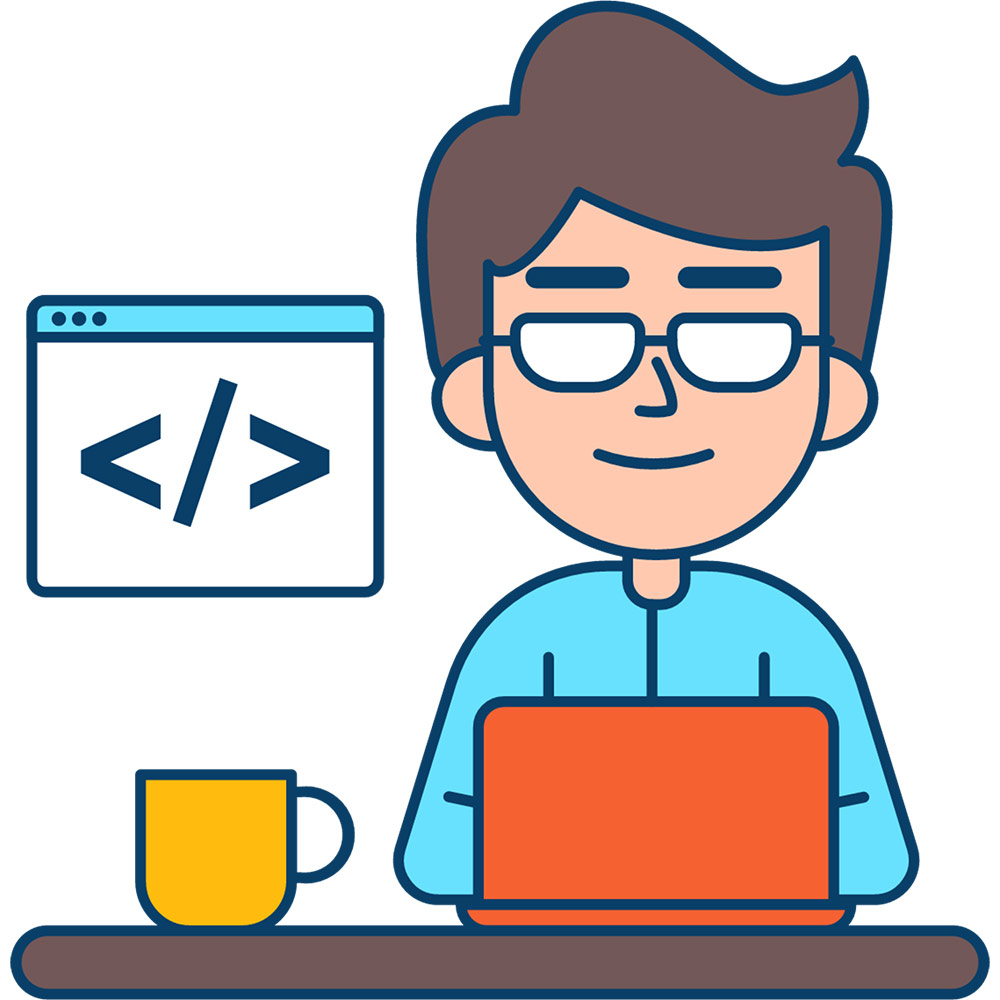
Web Developer Near Me: Finding the Perfect Match for Your Web Development Needs
Web Developer Near Me: Finding the Perfect Match
Having a strong online presence is crucial for businesses and individuals alike. A well-designed and functional website can make a significant difference in attracting customers, generating leads, and establishing credibility. This is where web development comes into play. In this article, we will explore the world of web developers and guide you in finding the right web developer near you.

Web Developer Near Me: Finding the Perfect Match for Your Web Development Needs
Definition of Web Development
Web development refers to the process of building and maintaining websites. It involves a combination of technical skills, creative design, and problem-solving abilities. Web developers are responsible for coding, designing, and optimizing websites to ensure they meet the desired objectives and provide an exceptional user experience.
Importance of Web Development for Businesses and Individuals
Having a website has become a fundamental requirement for businesses of all sizes. It serves as a virtual storefront that operates 24/7, allowing potential customers to discover your products or services at their convenience. A professionally developed website can help establish credibility, increase brand visibility, and facilitate online transactions.
For individuals, web development opens up opportunities for personal branding, portfolio showcasing, and online networking. Whether you’re an aspiring freelancer, artist, or entrepreneur, having a well-crafted website can significantly enhance your online presence and attract the right opportunities.
Brief History of Web Development
Web development has come a long way since its inception. The World Wide Web was created in 1989 by Sir Tim Berners-Lee, marking the birth of the Internet as we know it today. Initially, websites were simple and consisted mostly of text-based content. As technology advanced, web development evolved to include multimedia elements, interactivity, and dynamic functionalities.
With the advent of HTML5, CSS3, and JavaScript, web developers gained more flexibility and creativity in designing websites. The rise of content management systems (CMS) like WordPress and website builders like Wix further simplified the process, enabling individuals with no coding experience to create their websites.
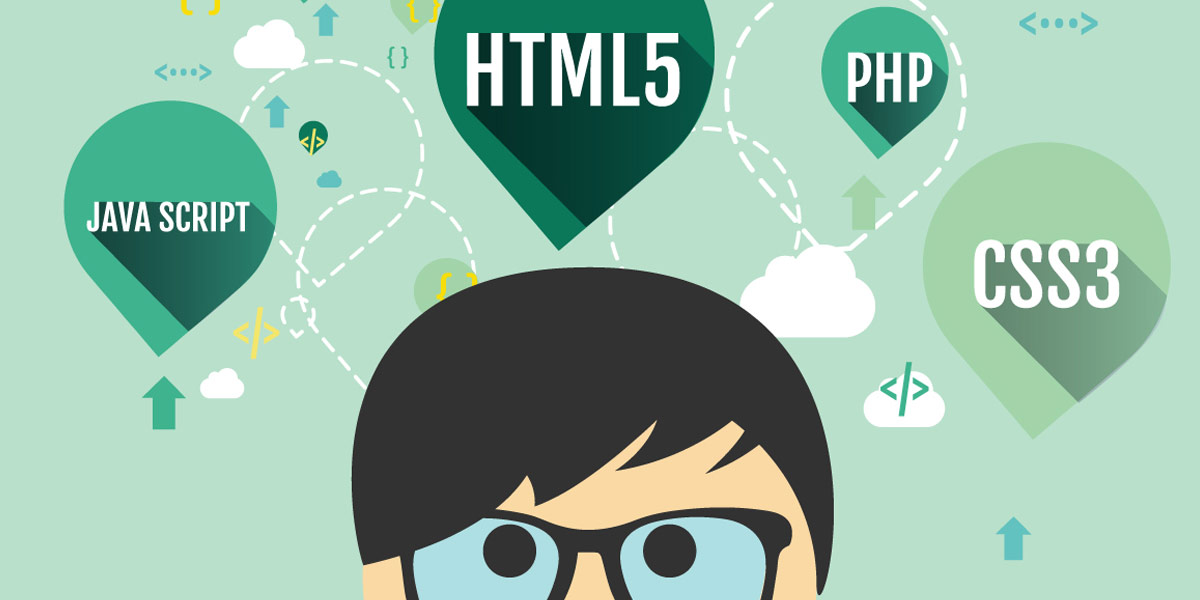
Web Developer Near Me: Brief History of Web Development
Types of Web Developers
Web development is a vast field that encompasses various roles and specializations. Here are some key types of web developers you might encounter:
Front-end Developers
Front-end developers focus on the user-facing aspects of a website. They are responsible for translating design mockups into functional web pages using HTML, CSS, and JavaScript. Front-end developers ensure that websites are visually appealing, responsive, and optimized for different devices and browsers.
Back-end Developers
Back-end developers work behind the scenes to develop the server-side logic and functionality of a website. They handle data management, server configuration, and integration of databases, ensuring that the website’s back-end components function smoothly. Back-end developers often work with programming languages like Python, PHP, Ruby, or Java.
Full-stack Developers
Full-stack developers possess a combination of front-end and back-end skills. They have a holistic understanding of web development and can handle both the client-side and server-side aspects of a website. Full-stack developers are proficient in multiple programming languages, frameworks, and databases, making them versatile professionals in the field.
UI/UX Designers
UI/UX designers specialize in creating visually appealing and user-friendly interfaces. They focus on the overall look and feel of a website, ensuring it is intuitive, engaging, and optimized for user experience. UI/UX designers collaborate closely with web developers to translate their designs into functional web pages.
Web Content Creators
Web content creators are responsible for producing high-quality content that engages and informs website visitors. They work closely with web developers to optimize content for search engines and ensure it aligns with the website’s objectives and target audience. Web content creators often handle tasks such as copywriting, content strategy, and search engine optimization (SEO).

Web Developer Near Me: Types of Web Developers
Skills Required for Web Development
Web development requires a diverse skill set to handle the complexities of designing and building modern websites. Here are some key skills that web developers should possess:
Programming Languages
Proficiency in programming languages like HTML, CSS, and JavaScript is essential for web developers. These languages form the foundation of web development and are used to create the structure, style, and interactivity of websites.
Frameworks and Libraries
Frameworks and libraries provide developers with pre-built components and tools to streamline the development process. Examples include React, Angular, and Vue.js for front-end development and Node.js for server-side development. Familiarity with these frameworks can significantly enhance a web developer’s productivity.
Databases and Server-side Technologies
Understanding databases and server-side technologies is crucial for developing dynamic and data-driven websites. Popular choices include MySQL, MongoDB, and Firebase for databases, and technologies like Node.js, Django, or Ruby on Rails for server-side development.
Version Control Systems
Version control systems like Git and SVN enable developers to track changes to their code and collaborate effectively with team members. Proficiency in using version control systems is essential for efficient and organized web development workflows.
Testing and Debugging Tools
Web developers should be familiar with testing and debugging tools to ensure the quality and performance of their websites. Tools like Chrome DevTools, Postman, and Jest help identify and fix issues, optimize code, and improve the overall user experience.
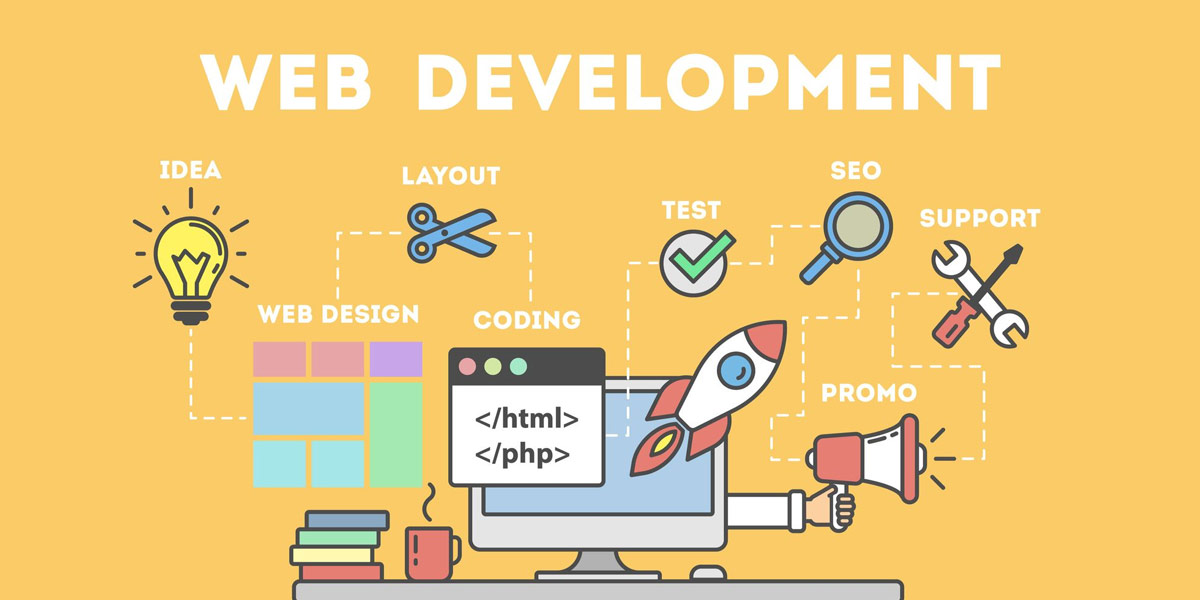
Web Developer Near Me: Skills Required for Web Development
How to Find a Web Developer Near Me
Finding a reliable and skilled web developer near you can be a daunting task. Here are some methods to help you in your search:
Local Job Boards and Classifieds
Check local job boards and classified ads for web development professionals who are actively seeking work. These platforms often have a section dedicated to web development, where you can find local talent available for hire.
Freelance Marketplaces
Freelance marketplaces like Upwork, Freelancer, and Fiverr provide a platform for connecting with web developers from around the world. You can browse their portfolios, read reviews from previous clients, and hire the one that best fits your requirements and budget.
Referrals from Friends and Colleagues
Reach out to your friends, colleagues, or business associates who have recently hired web developers. Personal recommendations can be invaluable in finding reliable professionals with a proven track record.
Online Directories and Review Sites
Online directories and review sites specific to web development, such as Clutch or GoodFirms, can help you find and compare web developers based on their expertise, ratings, and client reviews. These platforms provide insights into a developer’s strengths, specialities, and overall reputation.
Social Media and Professional Networks
Utilize social media platforms like LinkedIn, Twitter, or Facebook groups dedicated to web development to connect with professionals in your area. Engaging with these communities allows you to tap into a network of experienced developers and potentially find the right match for your project.

Web Developer Near Me: How to Find a Web Developer Near Me
Questions to Ask When Hiring a Web Developer
Before finalizing your decision, it’s crucial to ask relevant questions to evaluate a web developer’s skills and suitability for your project. Here are some important questions to consider:
What is your experience with web development?
Understanding a developer’s experience level helps assess their proficiency and expertise. Inquire about their previous projects, the industries they have worked in, and the complexity of websites they have developed.
What programming languages and frameworks are you proficient in?
Ensure that the developer has a firm grasp of the programming languages and frameworks necessary for your project. Their proficiency in technologies like HTML, CSS, JavaScript, or specific frameworks like React or Angular is vital to delivering the desired outcomes.
Can you provide examples of websites you have developed?
Reviewing a developer’s portfolio provides insights into their design aesthetics, attention to detail, and overall quality of work. Request to see websites they have built that align with your vision and requirements.
What is your process for developing a website?
Understanding a developer’s development process helps you gauge their approach and ensure it aligns with your expectations. They should be able to articulate the steps involved, including planning, design, development, testing, and deployment.
What is your pricing and payment structure?
Discuss the developer’s pricing model, whether it’s based on an hourly rate, fixed project fee, or retainer. Clarify their payment terms and milestones to ensure they align with your budget and project timeline.
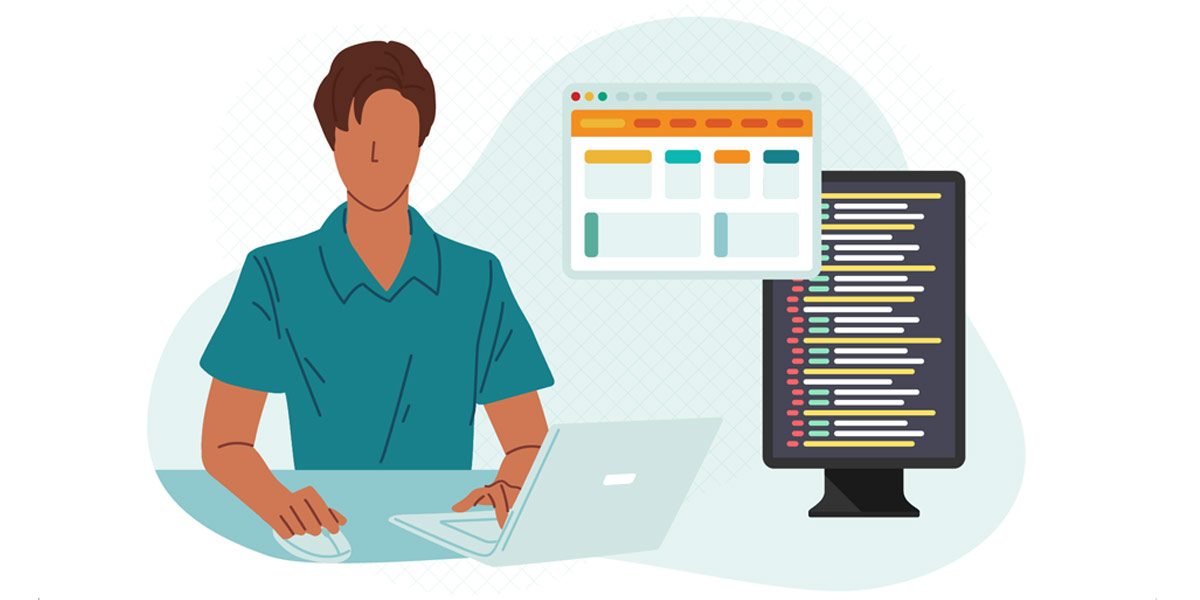
Web Developer Near Me: Questions to Ask When Hiring a Web Developer
Best Practices for Working with a Web Developer
Collaborating effectively with a web developer is crucial to achieving a successful outcome. Here are some best practices to ensure a smooth working relationship:
Establish Clear Communication Channels
Maintain open and transparent communication with your web developer. Convey your expectations, provide feedback promptly, and address any concerns or questions that may arise during the development process.
Set Realistic Expectations and Timelines
Set realistic project timelines and milestones in collaboration with your developer. Consider their input on the estimated time required for each phase of the project to avoid unnecessary delays or rushed deliverables.
Provide Detailed Project Requirements and Feedback
Clearly define your project requirements, objectives, and desired functionalities. Regularly review the work in progress and provide detailed feedback to ensure the developer is aligned with your vision.
Respect the Web Developer’s Expertise and Recommendations
Web developers bring their expertise and technical knowledge to the table. While it’s essential to communicate your ideas and preferences, be open to their recommendations and suggestions based on industry best practices.
Maintain a Positive and Professional Relationship
Establish a positive and professional working relationship with your web developer. Treat them with respect, be appreciative of their efforts, and maintain effective communication throughout the project.
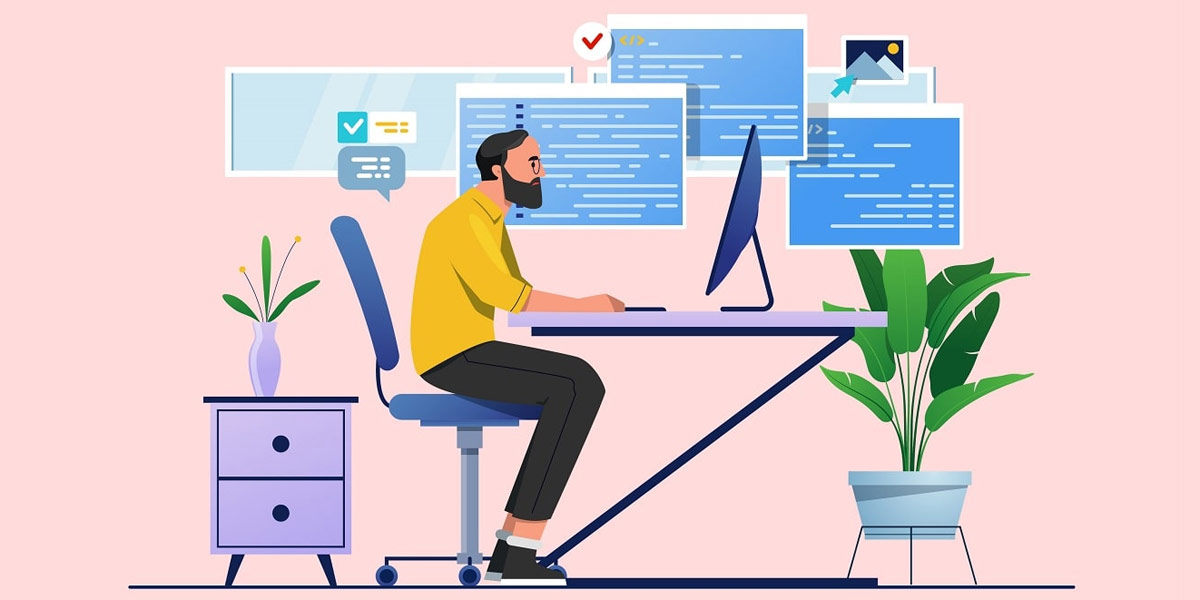
Web Developer Near Me: Best Practices for Working with a Web Developer
Conclusion
Web development plays a crucial role in establishing a strong online presence for businesses and individuals alike. Finding the right web developer near you can be a game-changer in creating a visually appealing, functional, and user-friendly website that meets your objectives. By understanding the different types of web developers, the required skills, and the best practices for hiring and collaborating with them, you are well-equipped to embark on your web development journey.
Remember, web development is an investment in your online success. Prioritize finding a web developer near you who understands your vision, has the necessary expertise, and can deliver a website that not only meets but exceeds your expectations.
FAQs
What is a web developer?
A web developer is a professional who specializes in building websites and web applications. They use programming languages, frameworks, and various tools to create the structure, functionality, and design of websites.
What are the different types of web developers?
There are several types of web developers, including:
- Front-end Developers: They focus on the client side of web development, working on the user interface and user experience aspects of websites.
- Back-end Developers: They handle server-side programming and are responsible for the logic and functionality that powers websites and web applications.
- Full-stack Developers: They have proficiency in both front-end and back-end development, allowing them to work on all aspects of web development.
- JavaScript Developers: They specialize in JavaScript programming languages and frameworks, which are widely used in web development.
- CMS Developers: They work with Content Management Systems (CMS) like WordPress, Drupal, or Joomla, creating and customizing websites using these platforms.
- E-commerce Developers: They specialize in building and maintaining e-commerce websites, integrating payment gateways, managing product databases, and implementing shopping cart functionality.
What skills are required to be a web developer?
To be a web developer, you need the following essential skills:
- Proficiency in HTML, CSS, and JavaScript
- Knowledge of programming languages like Python, Ruby, PHP, or Java
- Experience with front-end frameworks like React, Angular, or Vue.js
- Familiarity with back-end frameworks like Node.js, Django, or Laravel
- Understanding of databases and SQL
- Version control with Git
- Responsive web design
- Web performance optimization
- Testing and debugging
- Knowledge of SEO best practices
- Collaboration and communication skills
How do I find a web developer near me?
To find a web developer near you, follow these steps:
- Define your project requirements
- Research local web development agencies or freelancers
- Evaluate their skills and expertise
- Conduct interviews or consultations
- Consider communication and collaboration abilities
- Request quotes and proposals
- Check references
- Make your decision based on skills, expertise, communication, and cost
What are the essential questions to ask a web developer before hiring?
Here are some important questions to ask a web developer before hiring:
- What is your experience with similar projects?
- What programming languages and frameworks are you proficient in?
- Can you provide examples of your previous work or portfolio?
- How do you handle project management and changes during development?
- What is your preferred communication method and availability?
- Can you provide references from previous clients?
- What is your estimated timeline and cost for the project?
What are the common interview questions for a web developer?
During an interview with a web developer, you may ask questions like:
- How do you approach responsive web design?
- Can you explain the MVC (Model-View-Controller) architecture?
- Have you worked with RESTful APIs?
- What tools or techniques do you use for debugging and testing?
- How do you ensure website security?
- Can you describe your experience with version control systems like Git?
- How do you stay updated with the latest web development trends and technologies?
What are the top skills a web developer should have?
Some of the top skills a web developer should have include:
- Proficiency in HTML, CSS, and JavaScript
- Strong programming skills in languages like Python, Ruby, PHP, or Java
- Knowledge of front-end and back-end frameworks
- Understanding of databases and SQL
- Experience with version control systems
- Web design and user experience (UX) knowledge
- Problem-solving and debugging skills
- Ability to work with APIs and integrate third-party services
- Continuous learning and staying updated with industry trends
What programming languages do web developers need to know?
Web developers should know programming languages such as:
-
- HTML: for creating the structure and content of web pages
- CSS: for styling and layout of web pages
- JavaScript: for adding interactivity and dynamic functionality to websites
- Additional languages depend on the specific needs and technologies used, such as Python, Ruby, PHP, or Java for back-end development.
What are the most important aspects of a web developer’s job?
Some important aspects of a web developer’s job include:
- Building and maintaining websites or web applications
- Ensuring functionality and responsiveness of web pages
- Implementing design and user experience (UX) requirements
- Writing clean and efficient code
- Collaborating with designers, back-end developers, and stakeholders
- Testing and debugging websites for compatibility and performance
- Optimizing websites for search engines (SEO)
- Ensuring website security and data protection
- Staying updated with new technologies and best practices
How can I prepare for a career as a web developer?
To prepare for a career as a web developer, you can follow these steps:
- Learn the basics of HTML, CSS, and JavaScript
- Expand your knowledge with online tutorials, courses, or coding boot camps
- Practice building websites or web applications on your own
- Explore different programming languages and frameworks
- Build a portfolio showcasing your projects
- Collaborate on open-source projects or contribute to online communities
- Gain experience through internships or freelance work
- Stay updated with the latest web development trends and technologies
- Network with other professionals in the industry
- Continuously learn and improve your skills through ongoing education and self-study

With over two decades of web design and development expertise, I craft bespoke WordPress solutions at FallingBrick, delivering visually striking, high-performing websites optimised for user experience and SEO.




